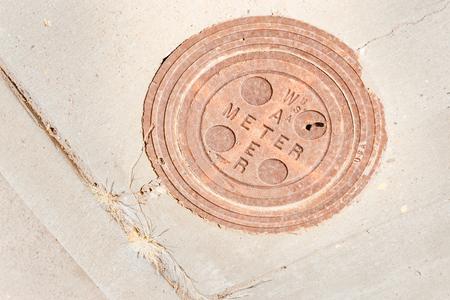
You might assume that if there is a problem that causes injuries that are widespread, it would be addressed and the problem solved. You’d think that it can cost more money to undergo lawsuits and simple thing like covering a water meter is less costly than repairing a person.
It doesn’t always work out that way. When a local government and/or business is not functioning well, it often shows up in how it responds to liabilities. When it’s difficult for individuals to sue, like in the case of a city government, then problems can linger and not become a priority.
To sue a city or a business for an injury sustained on their premises or with their equipment, negligence must be proved. Negligence is the failure to act with reasonable care. If you slip on a floor because there is a puddle, you need to prove that the other party knew of the problem and did nothing, or they did not take reasonable care to prevent the problem. Cleaning the floors each day and having someone on calendar to inspect the floor a few times a day could be considered a “reasonable precaution.” An affidavit from a former manager saying they never followed this schedule would be evidence.
The state can be liable for negligence or acting poorly in their duties.
Section 36-33-1 part B of the Official Code of Georgia Annotated (OCGA)
Municipal corporations shall not be liable for failure to perform or for errors in performing their legislative or judicial powers. For neglect to perform or improper or unskillful performance of their ministerial duties, they shall be liable.
Claims arising from such events as auto collisions and slip and fall accidents are allowed under GTCA. You can make a claim if you are injured by a government employee while in the course of their work, or in a state run building with dangerous property condition.
In 2012, the AJC reported that the City of Atlanta had installed as many as 10,000 faulty water meters. Incorrectly billing customers.
In 2015, the Atlanta Journal & Constitution (AJC) reports that “Former Atlanta Watershed workers file whistleblower lawsuit”. Reporting that Gwendolyn Winston and Loren Yarbrough, two former workers, filed suit over myriad concerns regarding health violations, safety hazards, compliance issues and fraud inside the department. Coincidentally, among the items reported stolen or missing; 10,000 water meters.
Noting that water meters are faulty by itself, does not necessarily relate to broken or missing covers, but as a pattern, might indicate the lack of a procedure or negligence. A reasonable person could assume that inspection of the meters would likely uncover the fact that the covers were improperly installed, or that perhaps growing roots had displaced it, causing a hazard. It could be argued that inspections either aren’t happening, or during their work, city workers may not know or be instructed to fix covers. The safety hazards and working conditions at the agency carrying out the responsibilities of the state, may show a habit of negligence that could carry over to the water meter covers that citizens interact with.
Additionally, the city has its fair share of prior injurious incidents:
In 2009, the City of Atlanta paid $325,000 to one woman for an injury due to a broken water meter. Using a legal theory under the Nuisance Law and a Freedom of Information Act (FOIA) request.
In 2011, a person stepped into an open water meter in Little Five Points. It was found that the city had previously paid $90,000 to another person injured by the same water meter 9 months earlier. The city settled for $240,000.
In 2015, a person broke both bones in their lower leg resulting in surgery after stepping into an open water meter covered with leaves. The city denied knowing about the hazard until an article in a local newspaper showed the exact same missing water meter cover. The city paid $275,000 to settle the case.
DISCLAIMER: The information herein is for educational purposes only and does not constitute legal advice. For any legal matters, we urge you to take the advice of an attorney familiar with your case.



